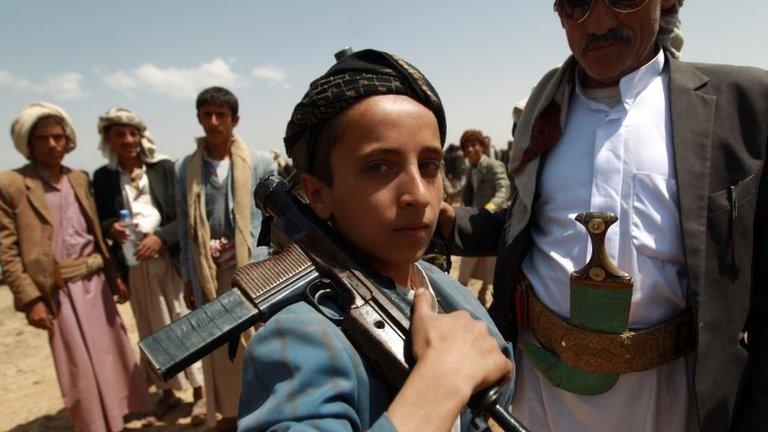Yemen war: US presses Saudi Arabia to agree ceasefire
- Published
The UN says Yemen is on the brink of the world's worst famine in 100 years if the war continues
The US has called for a swift cessation of hostilities in Yemen, where three years of civil war have caused the world's worst humanitarian crisis.
Defence Secretary James Mattis said all parties needed to take part in UN-led peace talks within the next 30 days.
Secretary of State Mike Pompeo meanwhile urged the Saudi-led coalition battling the rebel Houthi movement to end its air strikes on populated areas.
The US has faced growing pressure to end its support for the coalition.
UN human rights experts say coalition forces may have committed war crimes in Yemen and humanitarian organisations say their partial blockade of the country has helped push 14 million people to the brink of famine.
The murder of the US-based journalist Jamal Khashoggi by Saudi agents in Istanbul this month has also strained ties between Washington and Riyadh.
Why is there a war in Yemen?
Yemen has been devastated by a conflict that escalated in early 2015, when the Houthis seized control of much of the west of the country and forced President Abdrabbuh Mansour Hadi to flee abroad.
Alarmed by the rise of a group they saw as an Iranian proxy, the UAE, Saudi Arabia and seven other Arab states intervened in an attempt to restore the government. They have received logistical and intelligence support from the US, UK and France.
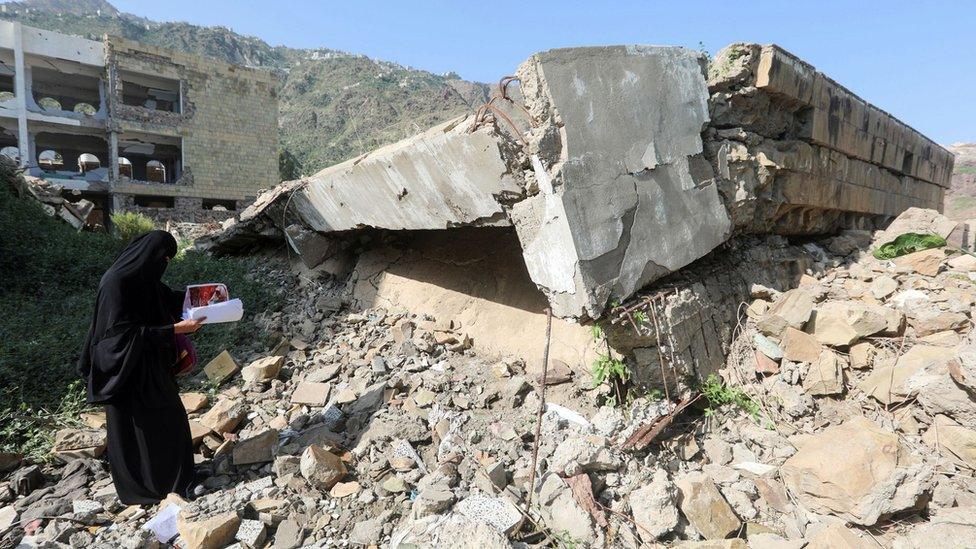
Air strikes have caused widespread damage and many civilian casualties
At least 6,660 civilians have been killed and 10,560 injured in the fighting, according to the United Nations. Thousands more civilians have died from preventable causes, including malnutrition, disease and poor health.
What did the US officials say?
Speaking at the US Institute of Peace in Washington on Tuesday, Mr Mattis said the US had been watching the conflict "for long enough".
"We have got to move towards a peace effort here, and we can't say we are going to do it sometime in the future. We need to be doing this in the next 30 days," he said.
Mr Mattis added that all sides were being urged to meet UN special envoy Martin Griffiths in Sweden in November and "come to a solution".
Headmaster grieves for the "sons" he lost
In a separate statement, Mr Pompeo called on the Houthis to end missile and drone strikes on Saudi Arabia and the UAE, external, and on the coalition to subsequently cease air strikes on all populated areas in Yemen.
"It is time to end this conflict, replace conflict with compromise, and allow the Yemeni people to heal through peace and reconstruction," he added.
The Trump administration has previously backed Mr Griffiths' mediation efforts and called for a settlement in keeping with UN Security Council 2216, external, which demands that the Houthis withdraw from all areas they have seized and relinquish their heavy weapons. The Houthis have rejected those demands.

Why the US ceasefire push is significant
By James Landale, diplomatic correspondent, BBC News
For months the Trump administration has said little about this bloody conflict, leaving its Saudi allies to take the lead. But the remarks by Mr Mattis and Mr Pompeo show the US is now engaging in a way it has not for some time.
Until now both the US and the UK have resisted calling formally for a ceasefire through the UN while it was obvious that neither side was willing to contemplate one. But that seems to have changed. The question, of course, is why?
Diplomats point to the growing pressure from the US Congress to act ahead of the mid-term elections. The US might also be hoping to use the backlash against Saudi Arabia over the murder of Jamal Khashoggi to put pressure on Riyadh to try to end the conflict. Some diplomats have even spoken of a Saudi compromise on Yemen being part of the rehabilitation of Crown Prince Mohammed Bin Salman, the kingdom's de facto leader.
The big question is how Iran, the main backer of the Houthi rebels, will react. Some diplomats have suggested that Tehran would not be unhappy to step back from Yemen, that its involvement there was always opportunistic rather than strategic, and that it has bigger priorities elsewhere. But it is not clear whether Iran would be willing to help the US when it is re-imposing sanctions on its economy after withdrawing from the Iran nuclear deal.
So the US move is important, but there is still a long way to go before a ceasefire becomes possible, let alone a political process to end the conflict for good.

What has been the reaction?
There was no immediate response from the Saudi-led coalition, the Houthis or Yemen's government.
Mr Griffiths said the UN welcomed the US calls, external and stressed that there could be no military solution to the conflict.
"We remain committed to bring the Yemeni parties to the negotiations table within a month. Dialogue remains the only path to reach an inclusive agreement," he said.
Mr Griffiths suffered a setback last month when Houthi representatives refused to fly to Geneva for the first peace talks in two years because of what they said was the UN's failure to guarantee their safe return to the rebel-controlled capital Sanaa.
Newsnight: Jeremy Hunt says a humanitarian corridor could be created in Yemen
UK Foreign Secretary Jeremy Hunt tweeted, external: "All parties must listen to the important call from the US for de-escalation in Yemen, in line with the UK's long-standing position. I discussed this issue with Martin Griffiths... at the FCO last night and we must back his efforts to find a political solution to the hilt."
A spokeswoman for the International Rescue Committee, a charity operating in Yemen, said hostilities needed to end as soon as possible so aid could be delivered to those suffering the most.
"From our perspective there's a lot that could have been done before a call for this ceasefire, but [it] is a significant breakthrough in this war and a welcome recognition that the current policy is failing," Kellie Ryan said.
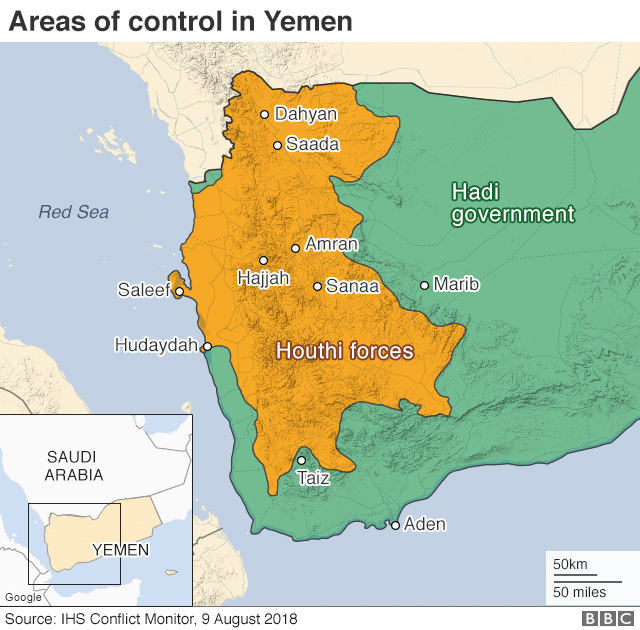

- Published24 October 2018
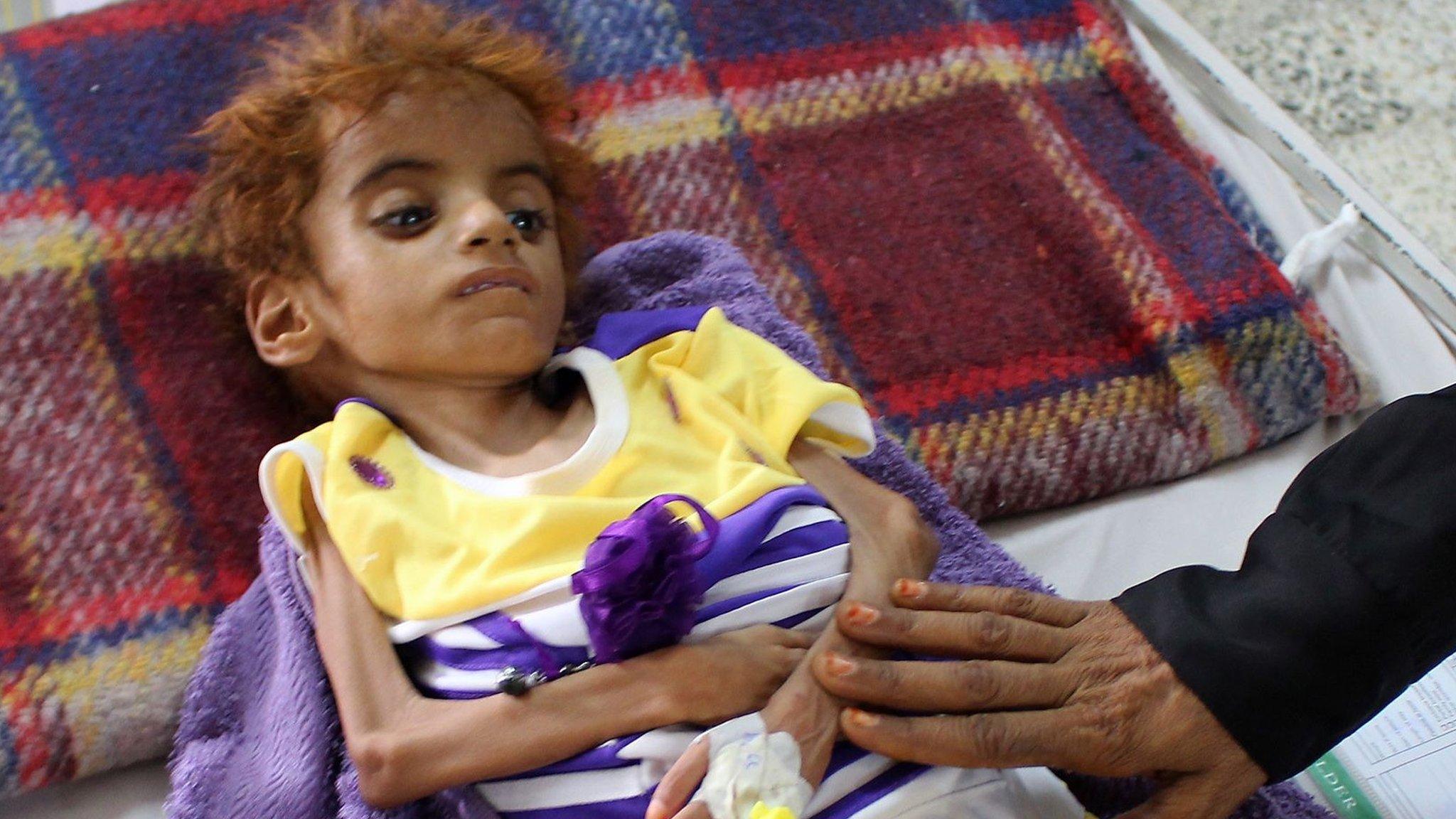
- Published9 September 2018
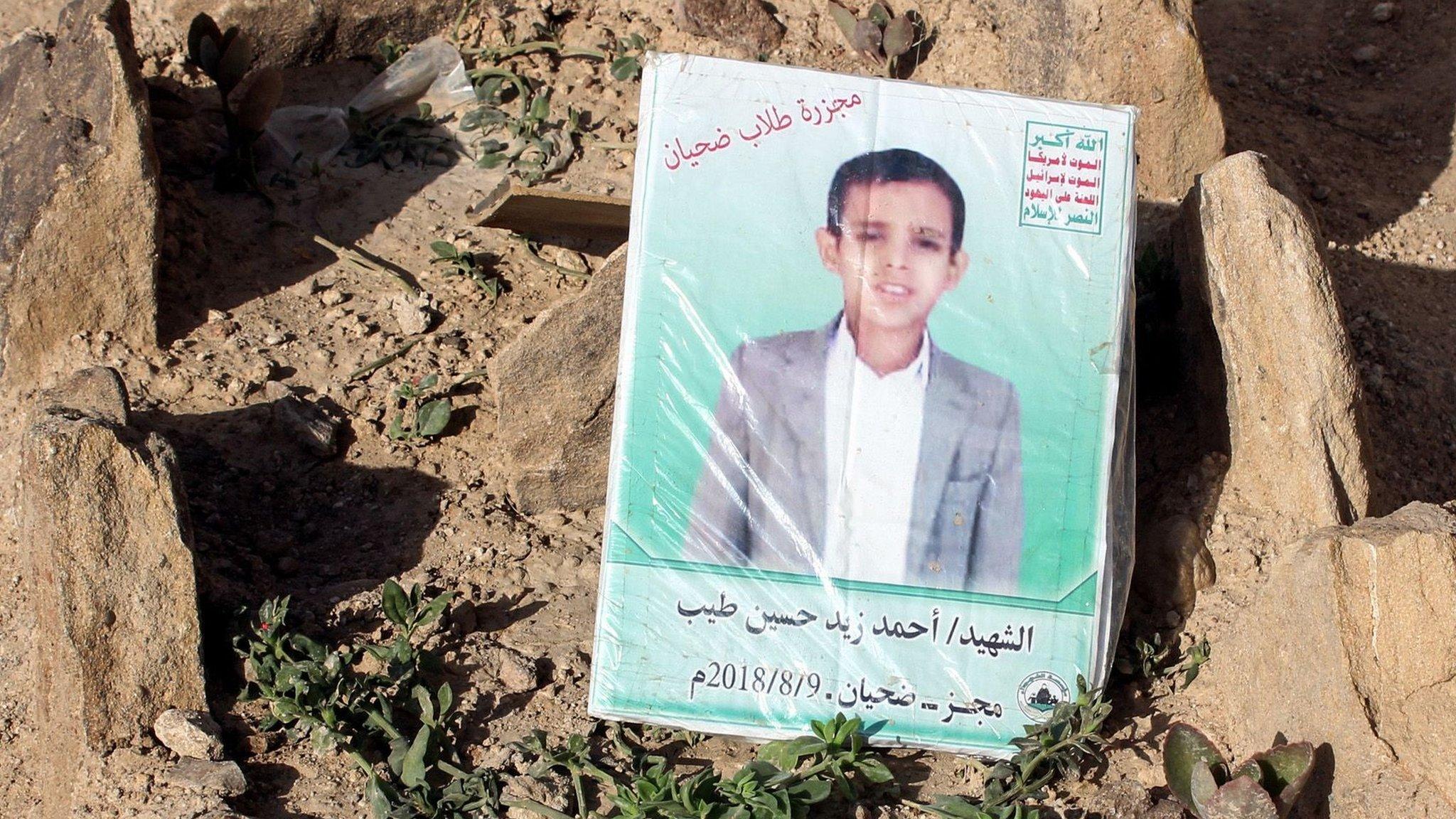
- Published27 August 2018
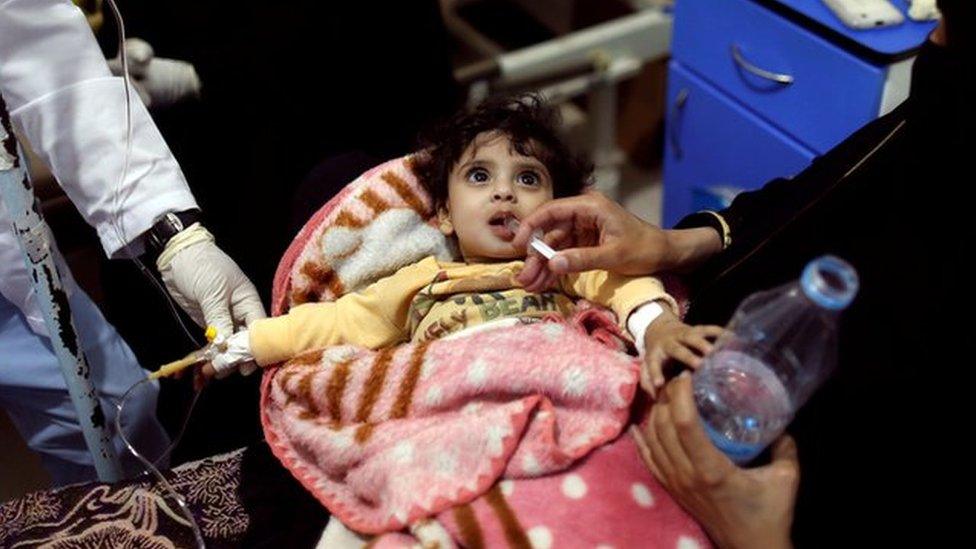
- Published23 August 2018
- Published19 November 2017

- Published13 June 2018
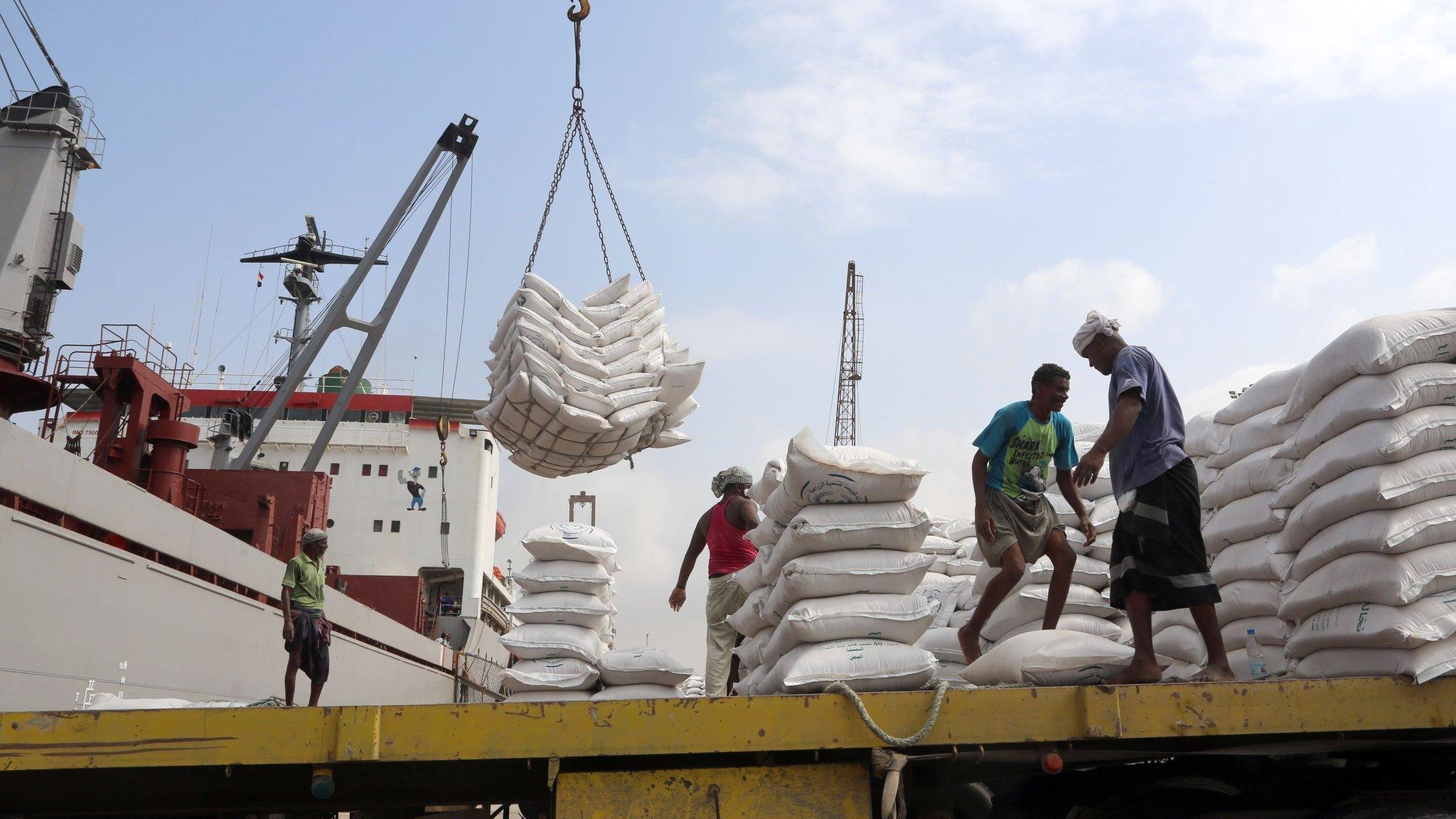
- Published23 August 2017
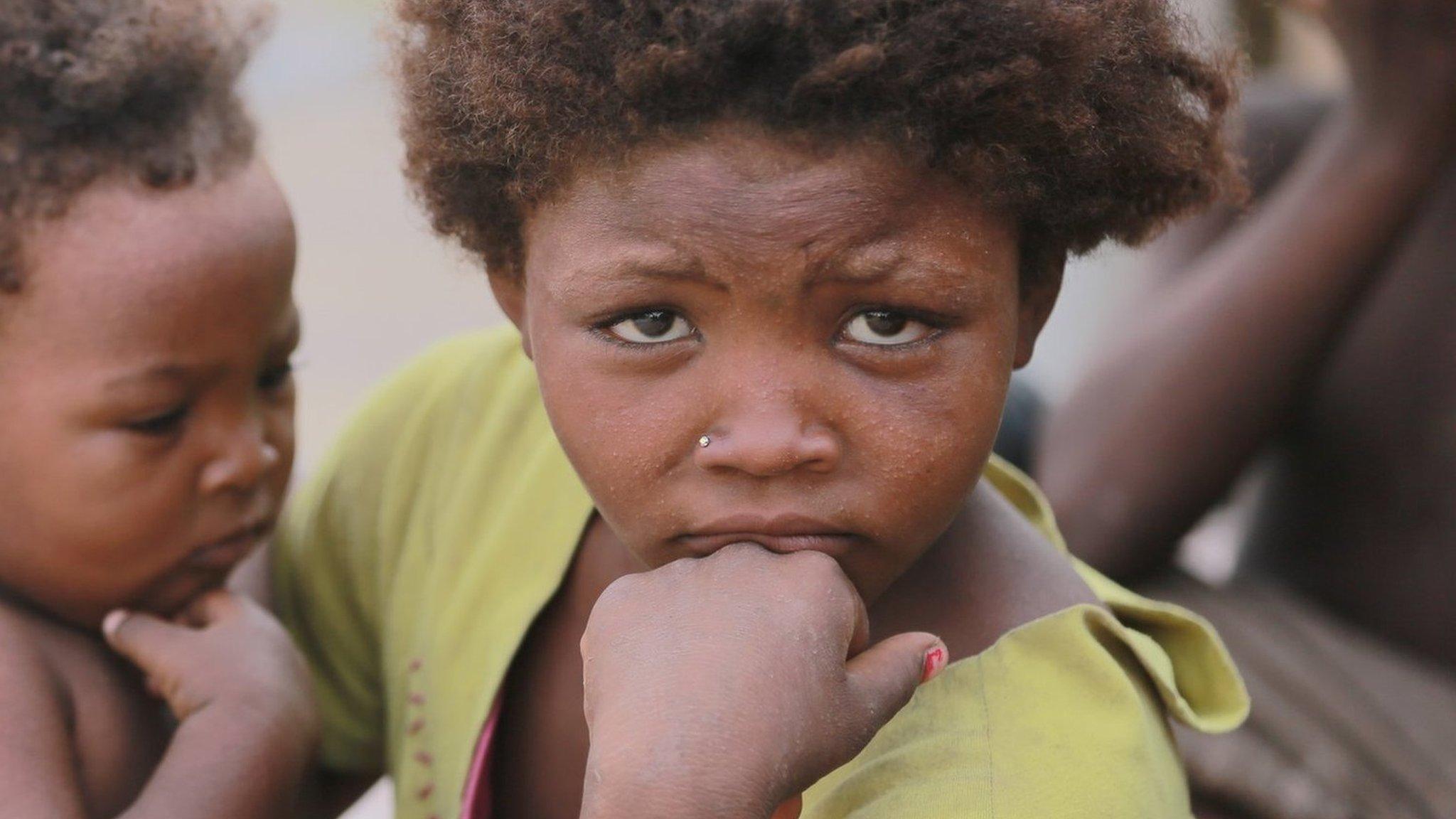
- Published5 October 2017
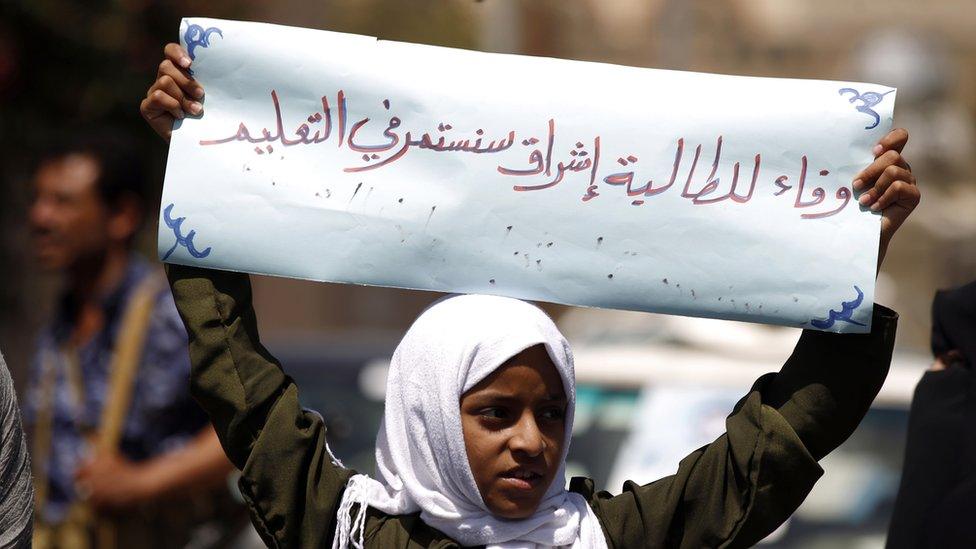
- Published14 April 2023
